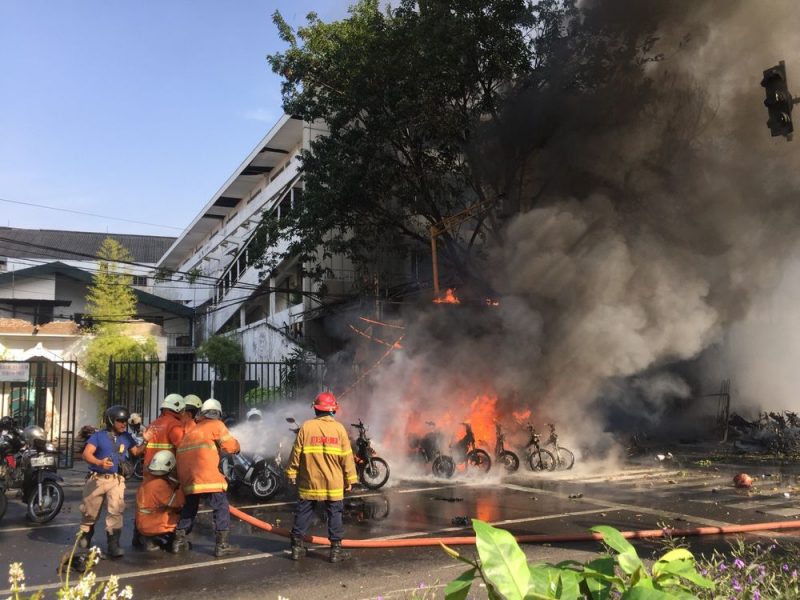Less than two weeks after a wave of attacks including three separate bombings at churches in Indonesia’s second largest city of Surabaya, lawmakers on Friday gave final approval to a long-delayed revision of the country’s 2003 anti-terrorism law. While the review had been proposed in early 2016 after a gun and suicide-bomb attack in central Jakarta, it had been stalled in the parliament for more than two years.
Police will now be handed enhanced powers to take preemptive action amid growing concerns about the threat from militants returning from battlefields in northern Iraq and Syria as well as the influence in Indonesia from the Islamic State terrorist group. The revised laws will mean people suspected of planning an attack can be detained for longer while making it an offense to take part in militant training at home or abroad.
There’s been a rapid rise in the number of Indonesians who’ve sought to join Islamic State, Justice and Human Rights Minister Yasonna Laoly told lawmakers after the revised law was passed. “This clearly threatens the sovereignty and security of Indonesia,” he said.
The attacks in Surabaya, claimed by Islamic State, left more than 30 people dead and prompted President Joko Widodo to threaten to use his executive powers if the parliament failed to pass revision by June. It was the deadliest spate of violence since bombings on the resort island of Bali in 2002 killed 202 people, mostly foreigners.
Source: Bloomberg
Photo courtesy of Surabaya Goverment Handout/Andy Pinaria via Getty Images




